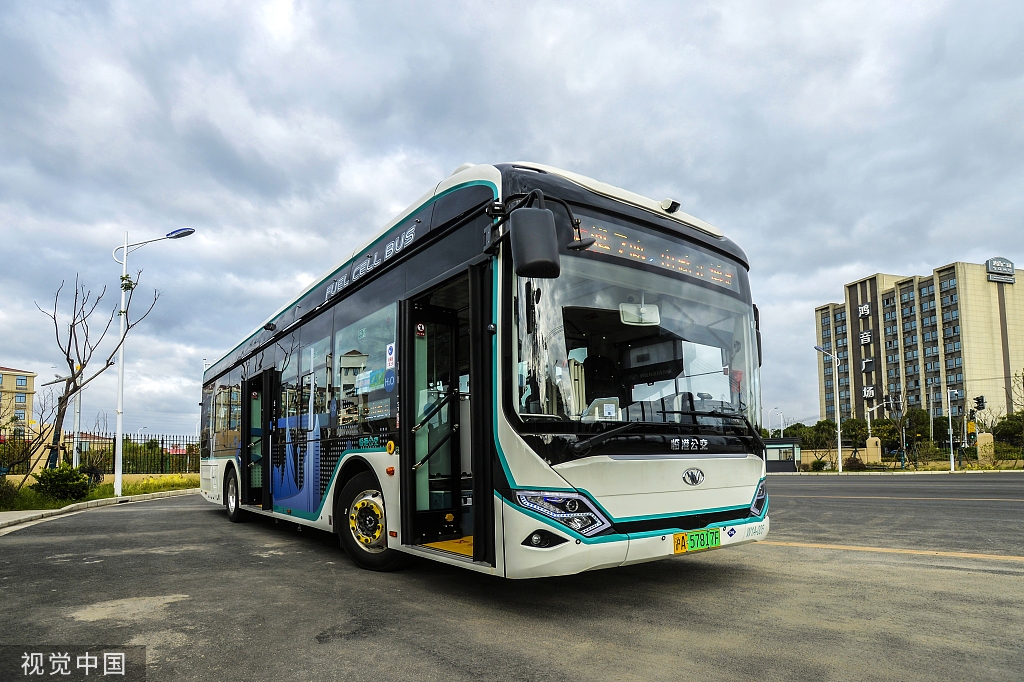Shanghai hydrogen moves into high gear


Shanghai announced on Friday it will establish a regional hydrogen pipeline network and a national trading platform, amid a slew of supportive policies to speed up the industry's development.
The move is part of the country's concerted efforts to reduce carbon footprint and meet emission targets, experts said.
The city had already pledged to build about 70 hydrogen fueling stations and have its size of hydrogen industrial chain surpass 100 billion yuan ($14.6 billion) by 2025.
Further efforts are still needed to increase the use of new energy in place of fossil fuels for the generation of hydrogen power. Experts said hydrogen power generated using new energy can help achieve China's green commitment.
According to a notice co-released by the Shanghai Municipal Development and Reform Commission and nine other local departments, the city will quickly plan the layout of the hydrogen transmission pipeline network, explore the planning and construction of pure hydrogen pipelines and hydrogen-mixed natural gas pipelines, and carry out related demonstrative projects in Lingang Special Area using its infrastructure like comprehensive energy stations.
The city also said support will be given to leading domestic companies in the hydrogen sector and professional institutions in the field of carbon trading, to jointly establish a unified and efficient hydrogen energy trading platform in Lin-gang Special Area.
To better establish a national hydrogen trading platform, the city will expedite research on improving relevant policies, regulations, industry standards, methodologies, price indexes, traceability and so forth.
Shanghai's release of supportive policies for hydrogen development is in alignment with China's mid- and long-term plans for the hydrogen industry released in March. The plans envisage hydrogen produced from renewable energy reaching 100,000-200,000 metric tons per year, and carbon dioxide emissions falling by 1-2 million tons per year by 2025.
China also vowed to form a relatively complete hydrogen energy technology innovation system, a mechanism of hydrogen made from clean energies and a supply system by 2030. The country pledged to form a hydrogen industry system and promote its use in various sectors like transportation and power storage by 2035.
Backed by policy support, China's development of hydrogen is on a fast track. According to the China Hydrogen Alliance, the output value of China's hydrogen industry increased from 240 billion yuan in 2020 to 360 billion yuan last year. It estimated that by 2025, the output value of China's hydrogen energy industry will reach 1 trillion yuan. By 2050, the output value of the hydrogen industrial chain will reach 12 trillion yuan. The alliance forecasts that hydrogen is expected to become a new driver of economic development.
"Hydrogen plays an important part in China's promotion of new energy development to peak carbon emissions by 2030 and reach carbon neutrality by 2060. Despite its importance, use of hydrogen is not commonly seen in areas other than new energy vehicles because of barriers in technologies and costs," said Lin Boqiang, head of the China Institute for Studies in Energy Policy at Xiamen University.



































